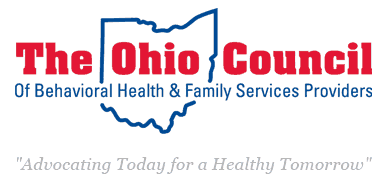Posted by Behavioral Health Billing Solutions, LLC

The Ohio Council sent out detailed information to members pertaining to meetings held with JCARR Chairman Duffy on the proposed rules related to the BH Redesign. Below is some of the information Ohio Council shared in a correspondence on June 15th.
If your agency is not a member today, I strongly urge you to become a member so you can become directly involved in some of the advocacy issues they address on a daily basis on our behalf. The Ohio Council is a huge advocate for ALL Behavioral Health Agencies in Ohio.
To become a member, select the appropriate application from this link.
According to the correspondence members received, they were successful in getting resolution or partial resolution on 7 of the 14 issues they raised. Below is a summary of the rule changes ODM agreed to make:
TBS Unlicensed Practice of Counseling: 5160-27-08 (A)(1)(c) will be updated and clarified, in consultation with the CSWMFT Board, so that unlicensed staff are not at risk of practicing “counseling” without a license.
Reimbursement for Licensed Staff: In 5160-27-03(D), the language will be updated to clarify that licensed staff may also be reimbursed for providing services covered in the CMH/ALCRX Tab of 5160-1-60, Appendix DD that an not covered under 5160-8-05. This will assure the ODM rules include payment for licensed staff providing MH Day Treatment, SUD Treatment Services, and SUD Case Management.
Outpatient Hospital Reimbursement for BH Services: ODM will add language in 5160-2-75 that will require outpatient hospital providers to have behavioral health accreditation in order to receive reimbursement for behavioral health services under the BH Redesign service coding and rate schedule. While this is an improvement, we remain concerned that outpatient hospital programs will not be required to have MHAS certification and will continue to advocate for an equitable regulatory environment.
Documentation Requirements: In 5160-8-05(F)(2), ODM agreed to review the list of required elements and add “as applicable” where appropriate. We provided JCARR and ODM with a chart outlining CMS, MHAS, and ODM documentation requirements to demonstrate the overregulation in the ODM rule. While the JCARR Chair was empathetic to the overregulation concerns, it was noted that the state agency can exceed federal requirements in state rules. The Chair did encourage ODM to look at the issue and consider other changes, but it will not be required for purposes of JCARR.
TBS/PSR Coverage Limit for Services >90 Minutes: ODM will add language to 5160-27-03(E)(2)codifying the 50% payment reduction for TBS and PSR after 90 minutes only applies when services are provided in an office setting. Presently, the lifting of the 90 minute payment limit is only referenced in the BH provider manual that is not part of a rule.
POS 99: Since place of service (POS) is used to determine payment, ODM must develop a rule to define how POS is used to adjudicate payment of Medicaid services.
SUD Residential Treatment: ODM asked the Ohio Council to submit language to clarify (C) regarding coverage for psychiatric services, OTPs, and MAT outside of the per diem rate. ODM only agreed to consider this language change.
Next Steps: ODM will be making the updates to the rules as described above. The ODM rules will NOT be reviewed on the June 19th JCARR meeting. ODM does not yet have a timeline for when they expect to refile these rules. ODM again reiterated that they will respect the decision of the legislature regarding timelines. To that point, the Ohio Council has received numerous inquiries about the administration’s July 1 BH Redesign implementation timeline. OHT, ODM, and MHAS have not issued any formal notice or communication on BH Redesign implementation timeline beyond what was stated last week during the BH Redesign stakeholder meeting that the administration “will respect the JCARR and legislative processes”. We do not expect the administration to make a written announcement regarding BH Redesign implementation timeline until the state budget process is complete. During the Opiate Conference held earlier this week, Director Sears commented publicly that “July 1 is not workable”, which is the strongest statement made so far by an administration official.
The Ohio Council agrees that BH Redesign implementation will not be July 1, and we will likely know the expected implementation timeline after the state budget is passed by the legislature and signed by the Governor. As of today, the Senate in HB 49, maintained the House passed six month delay of both the new service coding changes and the integration into managed care (aka “carve in) to January 1, 2018 and July 1, 2018, respectively. The Senate also included language that will require the ODM and MHAS directors to adopt all rules necessary to implement BH Redesign by October 1, 2017 to assure providers and plans have time to complete the clinical and business planning processes before the January 1, 2018 implementation timeline. As we have indicated before our desire is not just to delay implementation of BH Redesign, rather it is to use the legislative process to address these long standing policy, payment rate, and rule issues so that the implementation of BH Redesign is successful. We are continuing to advocate for the 3 amendments on timely payment protections, IT beta testing and readiness, and an ability for early adopters.


Once again, fantastically helpful information Teresa.